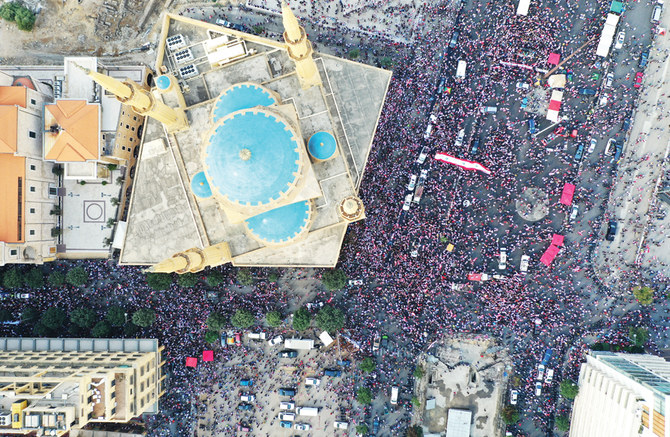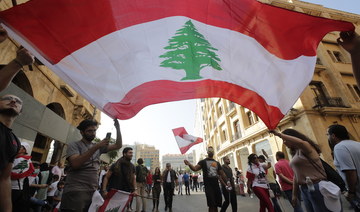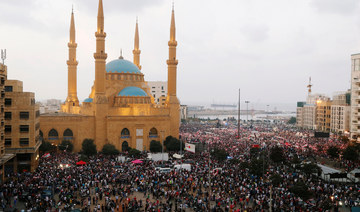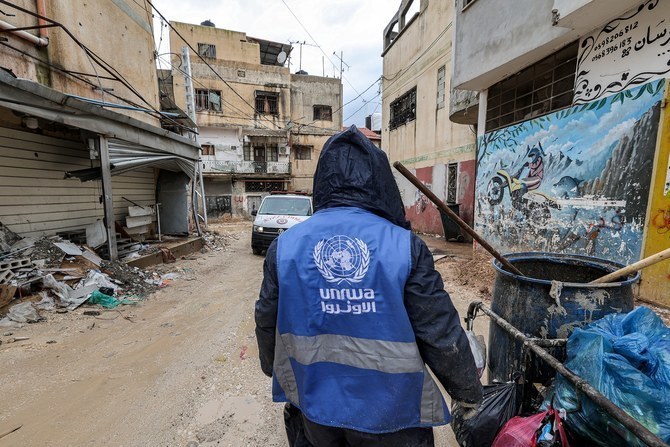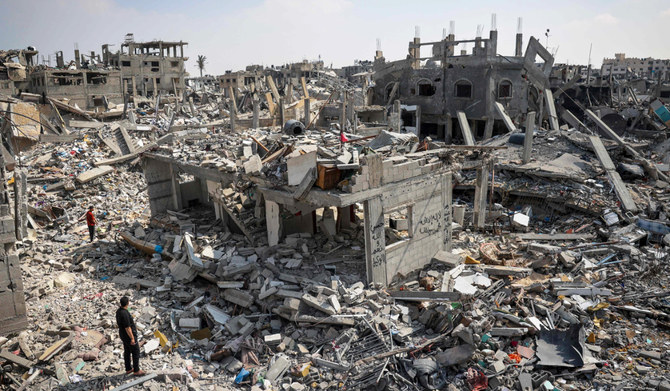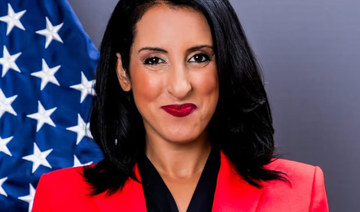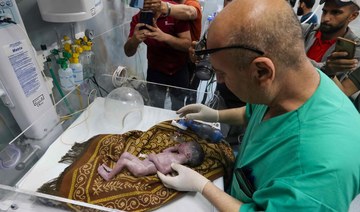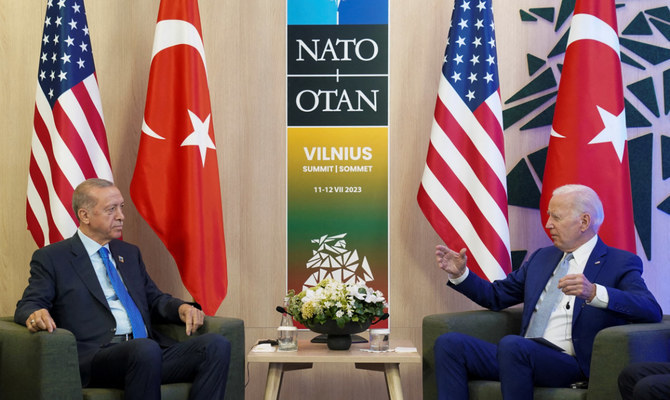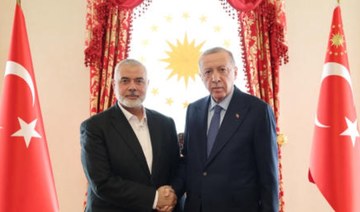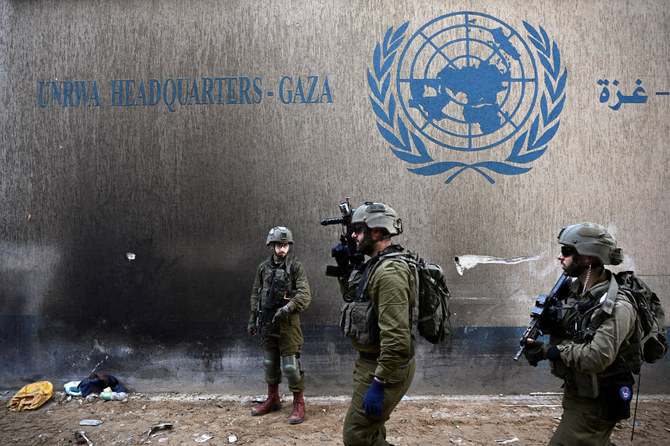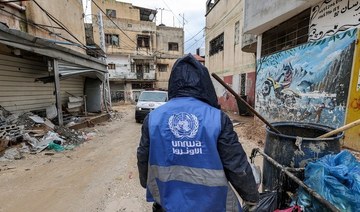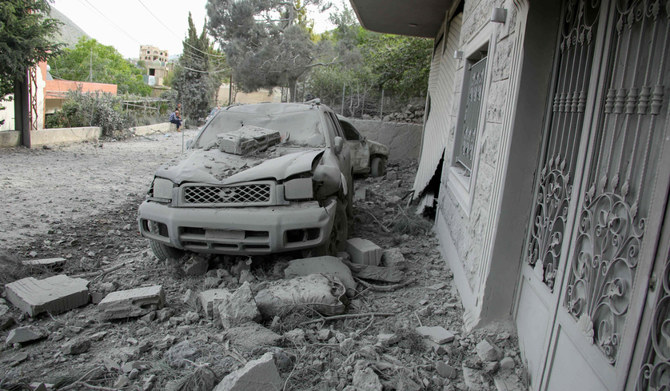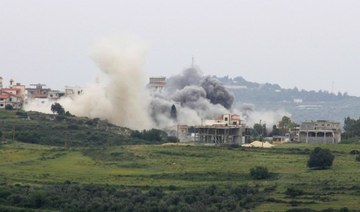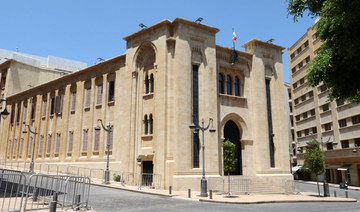DUBAI: Al-Thawra. From Tripoli and Jounieh in the north to Saida and Tyre in the south, and all the way to the capital Beirut, that single most powerful word — “revolution” in Arabic — has been echoing through the streets of Lebanon in recent days.
Millions of Lebanese from across the religious and sectarian spectrum have united under one flag to express their frustration and dismay with a government that they believe has betrayed them once too often.
Not since well before the 1975 civil war has Lebanon witnessed such obvious unity among its people.
Although many in the media were quick to point the finger at the government’s planned $0.20 daily fee on WhatsApp voice calls — an idea that was swiftly scrapped — ordinary Lebanese are adamant that the reasons for the demonstrations in the past week go much deeper.
“The protests are definitely not because of the WhatsApp tax,” said Farid Hobeiche, who took part in the protests in Keserwan.
“It’s because of hundreds and hundreds of reasons. The tax was the last straw because the government has been playing with us and has invented so many lies to take poor people’s money, while not coming up with solutions to fight corruption.”
HIGHLIGHTS
15% - Roads in Lebanon in good condition
4th - Worst in quality of electricity after Haiti, Nigeria and Yemen
113 - Lebanon’s ranking out of 137 countries in terms of infrastructure
26 - Jump in perceived corruption ranking since 2012 to 146 out of 180 countries
1997 - Last time Lebanon’s public-school curriculum was updated
The tax came on the back of irreparable damage caused by fires that ravaged forests in Meshref and Chouf last week when the Lebanese government was unable to press its firefighting helicopters into action.
It transpired that the helicopters — three Sikorsky S-70s donated to the government in 2009 — were out of service. The government had failed to allocate the $450,000 annual funding needed for their maintenance.
For most Lebanese, however, the devastating forest fires are emblematic of a dysfunctional state that levies heavy taxes on its people, but fails to provide them with any services.
From an unreliable electricity system to one of the poorest infrastructures in the world and a government considered beyond corrupt, there is a sense that the people of Lebanon are at the end of their tether.
Nasser Saidi, a former finance minister and vice governor of the country’s central bank, believes that the unrest is the result of a combination of factors: Poor governance; a rapid decline in health, education and environmental standards; and deteriorating economic conditions and prospects for the future.
“Lebanon has a high misery index of 36 percent, as measured by the sum of the unemployment rate (30 percent) and inflation (6 percent), similar to that of countries such as Nigeria, Bosnia and Iran,” he told Arab News.
“It is estimated that half of the labor force is in the informal sector without access to social insurance, and there is a high degree of inequality in the distribution of wealth and income — 1 percent of depositors own more than 50 percent of the value of deposits.”
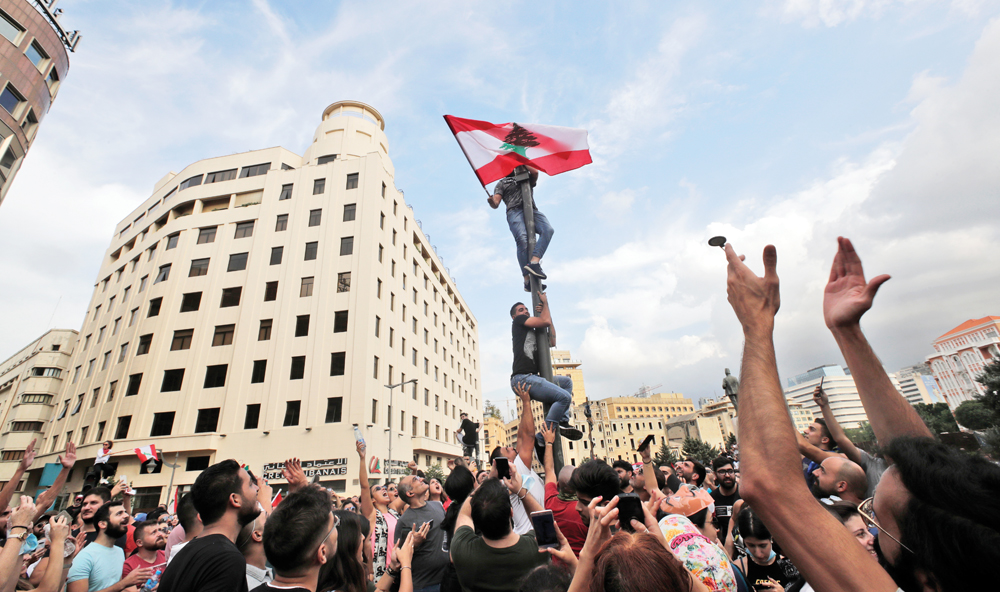
Lebanese demonstrators gather during a mass protest in the centre of the capital Beirut on October 18, 2019 against dire economic conditions. (AFP)
The overall economic picture is also alarming. Public debt has ballooned to $85 billion, making Lebanon one of the world’s most indebted countries, and the unemployment rate remains stubbornly high.
At the same time, quality of life has taken a nosedive as air, water and soil pollution levels rise. Most Lebanese have little doubt that there is a direct link between the pervasive pollution and the many life-threatening illness, including cancer, to which they are falling prey.
Meanwhile, politicians bicker over who should receive the biggest share of Lebanon’s potential oil and gas bonanza.
This untenable situation has galvanized Lebanese residents and expatriates, uniting them for a single cause, which they are calling the “end of the civil war.”
For Mona Paoli, a mother of two, the protests have struck a deeply personal chord.
“At the end of each holiday, I have to kiss my children goodbye and watch them leave Lebanon for other countries because here we are simply ‘not allowed’ to live,” she told Arab News.
“We raise our children and export them because in our country unemployment rates are at their highest. If, by chance, a youngster finds a job, it is for a pathetic salary that is not enough to sustain him for more than two weeks.”
Paoli added: “Our civil war ended almost 30 years ago, yet we still have no electricity, running water, medical care for all, no access to schools and universities without having to pull strings. Our most basic rights are trampled on. A hungry population is a population that ends up revolting.”
From students to professors, pharmacists to doctors, employees to pensioners, Lebanese share the same feelings of fatigue and injustice.

Activist Oleksandra Al-Zahran provides live online updates ‘to show people are protesting peacefully.’ (Supplied photo)
“They have been incredibly organized,” Paoli said. “Every morning at 6 a.m. volunteers pick up, clean and sort garbage. It’s a beautiful solidarity and this is our Lebanon.”
Hobeiche said that continuing demonstrations can have only two outcomes — either the government collapses or it adopts sweeping measures to tackle the serious problems that have been accumulating over several decades.
“No one ever takes responsibility,” he said. “We need to see change, not just people talking.”
A few months ago, the Lebanese government asked US management consultants McKinsey & Co. for recommendations on ending the country’s spiralling economic problems. But it is believed that no action has been taken on the firm’s report.
“I am trying to help, with the help of my social media platform because the news media is not covering everything,” Hobeiche said.
“A lot of the ugly things that are happening, such as violence and the burning of tires, are getting media attention. I am trying to show how people are protesting peacefully.”
Hobeiche’s views were echoed by Oleksandra Al-Zahran, a 24-year-old civil society activist, who said that the only flag to be seen at the protests is the Lebanese triband, a rare event in a country where party loyalties run deep.
“People are out on the streets and they are not planning on going anywhere,” she said.
Al-Zahran posts live updates on her Instagram page to offer what she believes is an account of the true situation, as opposed to Lebanese media portrayals.
“They keep on emphasizing that the whole issue started because of the WhatsApp tax, which is not true,” she said. “People are done with the corrupt government and sectarianism, and they want change.
“There are no jobs. For those who have one, the monthly income, about $800, is not something on which you can live. We want all the politicians to resign.”
Former minister Saidi said that there is a clear consensus that Lebanon needs a regime change, with a new beginning that establishes the rule of law, combats corruption and addresses the country’s many divides.
“It is time for a new government with extraordinary powers, composed of non-partisan technocrats, able to implement a financial plan to address Lebanon’s high level of debt, among other things,” he said.
“New elections should bring forth fresh blood and a new vision for the country. Clearly, this will be an uphill battle and there will be opposition from the varied forces of the establishment. But the future of Lebanon and our young is at stake.”



